The Spectator brings you the latest insight, news and research from the front line. Sign up here to receive this briefing daily by email, and stay abreast of developments both at home and abroad.
News and analysis
- The UK has approved a new antibody test for detecting Covid-19. Details below.
- It could take ‘many months’ to restart NHS services, according to experts from three leading think tanks. The news comes as A&E attendance fell to its lowest level on record.
- A study from the University of Manchester has claimed that 29% of the UK population may have already had Covid-19 by the end of April.
- Plans for the NHS Covid-19 tracing app have been leaked after officials put the documents online by mistake. Details below.
- Teachers are more likely to contract Covid-19 from colleagues than pupils, according to the government’s chief pandemic modeller.
- Some 44 NHS workers in London who tested positive for Covid-19 during a scientific trial were not informed that they had the virus.
- Penguin is to publish a children’s book and autobiography by Captain Tom Moore.

Will antibody tests be a gamechanger?
Ten days ago, UK authorities approved a Covid-19 antibody test from Roche. This morning, the decision is front-page news. Given that the same Roche test was confirmed 100 per cent accurate by the US Food and Drug Administration on 3 May, it’s hardly a new development. And given that the FDA has approved a dozen other antibody tests, it’s not a major one either. The UK is slowly catching up on testing, after several missteps. Public Health England failed to work with private labs (as Germany did) meaning we had to abandon the track-and-trace policy in March, and only return to it in recent weeks. Even now, PHE struggles. It emerged on Tuesday that results from Covid-19 testing in private labs have been lost within the NHS system.
When it comes to testing, the UK is more noted for its enthusiasm than its ability. No. 10 is basing its policy around the R-number – which can only be calculated through mass testing. Test, track and trace – the UK’s big plan for repelling a second wave – rather relies on the ability to get testing right. The US has not just approved a dozen different antibody tests, it has 200 others being reviewed. As James Forsyth reveals in his Spectator column today, senior officials think Britain will need the capacity to carry out 500,000 tests per day for the lockdown to be fully lifted. Quite an ask for a country that is struggling so visibly with testing.
Once, it was hoped that the tests would reveal – as per the famous Oxford study – that about half of the country had already had Covid-19, so panic over. But the world’s first antibody test, carried out by Stanford academics to prove this very point, showed just 4 per cent prevalence. The first results from a nationwide study in Spain – which will involve 90,000 people from 36,000 households – showed an infection rate of just 5 per cent (albeit with big regional variation, from 1.4 to 14.2 per cent). We’ve seen 21 per cent prevalence in New York City and 30 per cent suggested for Stockholm. But the 60 per cent level spoken about as the threshold for herd immunity is unlikely to show up in any country. In New York state (as opposed to city) it was just 3.6 per cent. Enough of these tests have been done, the world over, to give a general picture, and all the indications are that a mass UK study will likely show the same. It is unlikely to be a gamechanger.
In pictures
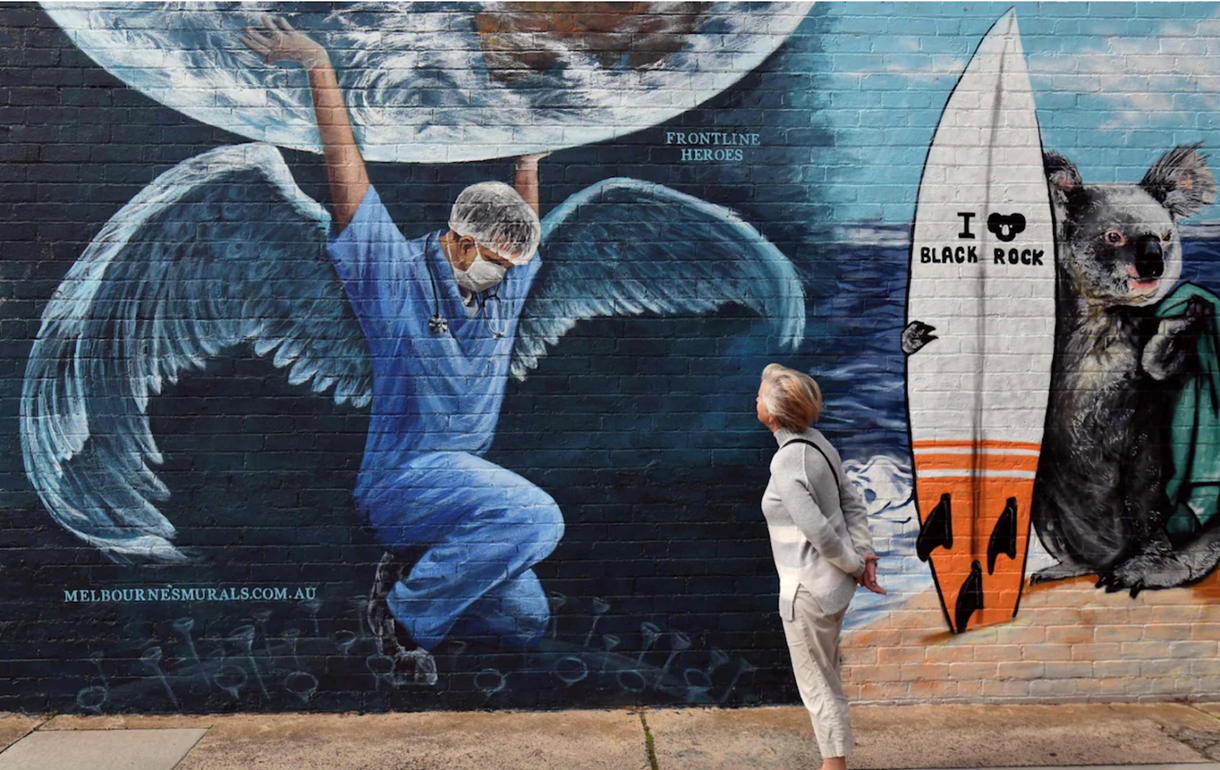
In words
If we look at under 25s, there are 17 million of them in the country. We have had 26 deaths recorded and again many will have had other conditions. That’s still just one or two per million… Let’s compare it with the over-nineties, now more than one per cent of the over-nineties in this country have so far died from Covid-19, just in four weeks essentially. So that’s a substantial proportion. That is 10,000 times the risk of the younger people.
– Professor Sir David Spiegelhalter saying Covid-19’s risk to pensioners is up to 10,000 times the risk to 10-year-olds.
The staff room potentially is a kind of a bigger hub of transmission than the classroom
– Sage member Professor Graham Medley, in a speech at Cambridge University.
NHS Covid-19 app plans leaked
Nothing causes Whitehall headaches like an IT project. Following a long line of digital mistakes before it, detailed plans for the NHS coronavirus tracing app, labelled ‘OFFICIAL – SENSITIVE’, have ended up online for all to see, just with the click of a link. Concern has been raised, not just about how the documents became public, but the details within them. As Steerpike notes on Coffee House, the ‘document makes clear that the NHS is eyeing up users’ precise location data as well as details of their registered GP practice. Currently, the mobile tracker only asks users for the first part of their postcode.’ This raises questions about how much data they plan to draw from the app, and if plans for track-and-trace line up with the privacy and security pledges that have been made to the public. The ‘update as you go’ approach doesn’t quite work when civil liberties are involved – a lesson learned the hard way by Ventura County officials in California last week, when they were forced to apologise and roll back a casual announcement that Covid-19-positive children and adults could be taken from their homes and forced to quarantine in state-approved lodging. The key to public buy-in will be boundaries and good communication – which doesn’t involve reading leaks.
Global news
- Spain’s seroprevalence study suggests that 5% of the population has had Covid-19, with infection rates in provinces between 1.4% and 14.2%. Only 4.4% of France’s population has contracted Covid-19 with the number in the hardest hit regions reaching no more than 10% infection.
- The FBI and Department of Homeland Security have accused China of trying to steal research related to Covid-19.
- A private armed militia is protecting a Michigan barber who has reopened in defiance of lockdown.
- Harvard and MIT are developing a facemask that lights up if it detects Covid-19.
- Russia is to raise the age limit for buying alcohol to 21, from 18, amid concerns that young people have been binging during lockdown. Meanwhile an Australian brewer will dispose of nearly eight million pints of expired beer.
- A zoo in Canada will return two pandas to China as the pandemic has affected bamboo supply chains.
Datawatch
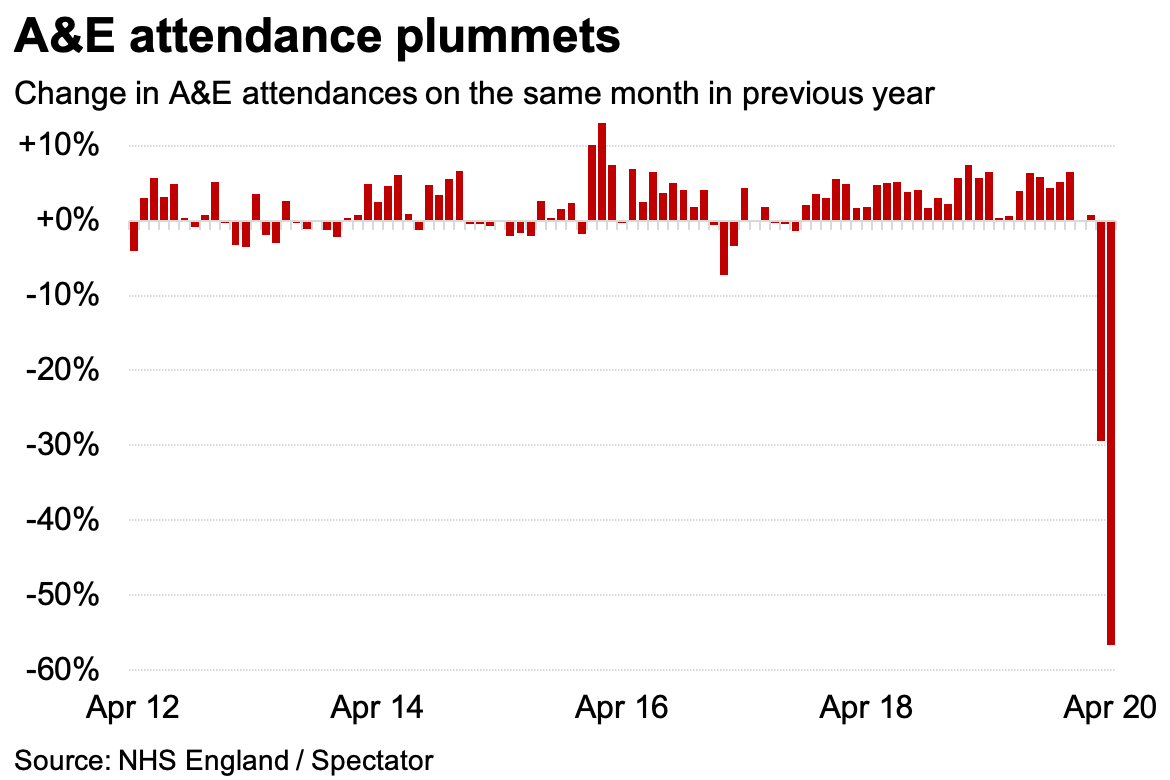
Podcast
On this week’s episode of Coronomics: stories from countries turned upside down, Kate Andrews speaks to our panel – based in New York City, Rome and Hong Kong – about Hong Kong’s reopening, the UK’s new ‘stay alert’ slogan, the American unemployment nightmare, and growing divides between northern and southern Italy.
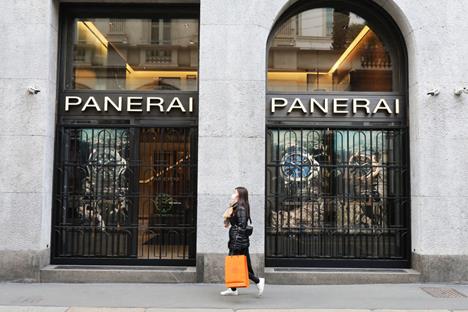
Research
To what extent do asymptomatic Covid-19 infections contribute to the spread of the virus? The research team at the London School of Hygiene and Tropical Medicine created a transmission model of Covid-19 ‘calibrated to outbreak data from the Diamond Princess’, the cruise ship on which 19 per cent of passengers became infected with the virus. Based on preliminary findings, asymptomatic individuals were the source of nearly 70 per cent of all the infections onboard the cruise ship. Despite testing, ‘53 per cent, (51-56 per cent) of infections remained undetected, most of them asymptomatic’. The study concludes that asymptomatic carriers of Covid-19 play a large role in the transmission of the virus. This raises questions about the track-and-trace method of tackling the disease, or any other system which requires a person to alert authorities if they are experiencing symptoms associated with Covid-19. For many people potentially spreading the virus, those symptoms won’t exist.
Coronomics
- Some 44% of businesses in the UK say their cash reserves will run out in less than six months, according to the ONS.
- The insurance industry could lose more than $200 billion, according to Lloyd’s of London.
- Almost 600,000 Australians lost their jobs in April, as the country’s unemployment rate rose to 6.2%.
- WHSmith’s revenue fell by 85% in April compared with the previous year. Sales dropped by 75% at its high street shops and by 91% at its travel stores.
- Starbucks is asking many of its landlords for rent breaks of up to a year. The coffee house chain has seen sales fall during the pandemic, but the request has not been ‘well received’.
More from The Spectator
League of nations: the race out of lockdown – Fredrik Erixon
Don’t panic about how Britain will afford its coronavirus bill – Anthony Browne
Is the R number a flawed measure? – Dr Waqar Rashid
Will coronavirus change the way we talk about death? – Dr Paul Keeley
NHS Covid app plans leaked – Steerpike
Self-isolation tips from Spectator Life
The best Michelin-star meals to order to your door – Marianna Hunt
Seven family films to keep the kids entertained – Will Gore
Shake it up: iconic hotel cocktails to recreate at home – Spectator Life

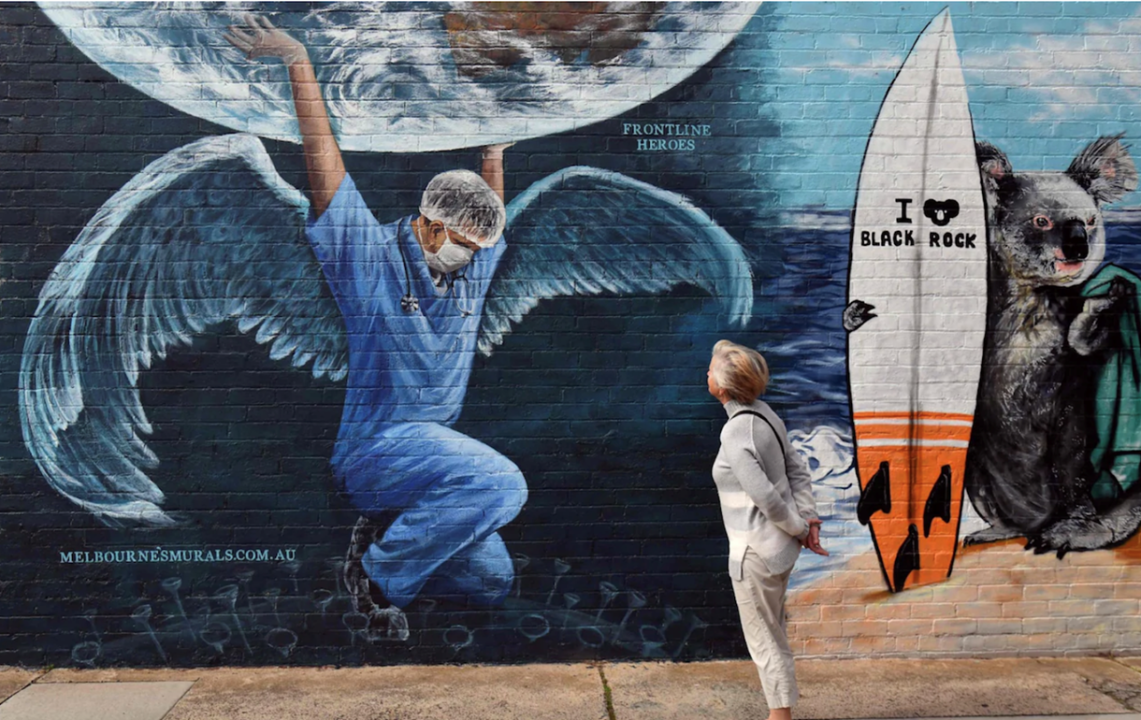
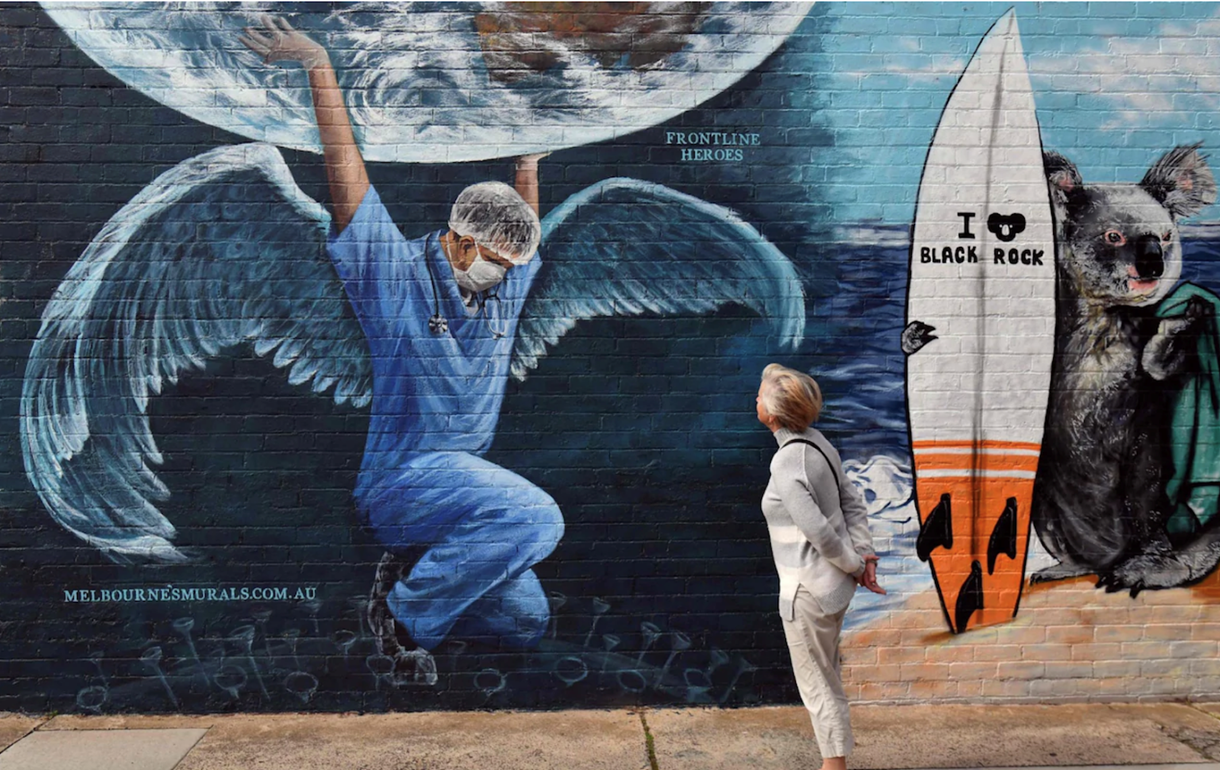




Comments